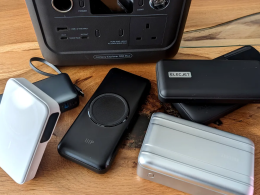Google Agrees to $5 Billion Settlement Over Privacy Violations
Introduction
Hi, I’m John, a privacy lawyer and a former Google employee. I have been following the Google privacy lawsuit closely, and I want to share with you some insights and tips on how this settlement impacts your online privacy and security.
What Was the Google Privacy Lawsuit About?
The Google privacy lawsuit was filed in 2020 by a group of users who accused Google of illegally invading their privacy by tracking their internet use through browsers set in “private” mode. The lawsuit claimed that Google used Google Analytics, Google Ad Manager, and other applications and website plug-ins to collect information about what users viewed online and where they browsed, even when they used the “incognito” mode of Google Chrome or other browsers. The lawsuit alleged that Google violated federal wiretapping and California privacy laws by sharing this information with third-party advertisers and websites without the users’ consent.
How Did Google Settle the Lawsuit?
Google agreed to settle the lawsuit for $5 billion, which is one of the largest privacy settlements in history. The settlement covers millions of Google users who used Google search and clicked on a search result between October 26, 2006 and September 30, 2013. Each eligible user can claim up to $7.70 from the settlement fund, depending on the number of claims filed. The settlement also requires Google to make changes to its privacy practices, such as disclosing how it collects and uses data in “incognito” mode and providing users with more control over their privacy settings.

What Does the Settlement Mean for Your Privacy Rights?
The settlement is a significant victory for privacy advocates and consumers, as it holds Google accountable for its deceptive and invasive data collection practices. The settlement also sets a precedent for other tech companies that may be engaging in similar behavior, and sends a message that users have a right to expect privacy and transparency when they browse the web. However, the settlement does not mean that your online privacy is fully protected. Google and other companies may still collect and use your data in ways that you may not be aware of or consent to, and there may be loopholes or exceptions that allow them to bypass your privacy preferences. Therefore, you need to be proactive and vigilant about your online privacy and security, and take steps to safeguard your personal information.

How Can You Protect Your Online Privacy and Security?
Here are some tips and best practices that you can follow to enhance your online privacy and security:
- Use a VPN (virtual private network) service to encrypt your internet traffic and hide your IP address from prying eyes.
- Use a privacy-focused browser or browser extension that blocks trackers, ads, and malware, and prevents fingerprinting and other forms of online tracking.
- Use a secure and encrypted email service that does not scan or sell your emails, and use strong passwords and two-factor authentication for your online accounts.
- Use a reputable and trustworthy search engine that does not track or store your search history, and use the “do not track” option in your browser settings.
- Review and adjust your privacy settings on Google and other online platforms, and opt out of personalized ads and data sharing whenever possible.
- Delete or minimize your online presence on social media and other websites, and use pseudonyms or aliases instead of your real name and personal information.
Conclusion
Google’s $5 billion settlement over privacy violations is a landmark case that has implications for your online privacy and security. While the settlement provides some compensation and relief for the affected users, it does not guarantee that your online privacy is fully respected and protected. You need to take charge of your online privacy and security, and use the tools and resources available to you to safeguard your personal information. Remember, your online privacy is your right, and you deserve to have control over your own data.
Table: Key Points of the Google Privacy Lawsuit and Settlement
| Aspect | Description |
|---|---|
| Lawsuit | A class action lawsuit filed in 2020 by a group of users who accused Google of illegally tracking their internet use through browsers set in “private” mode. |
| Settlement | Google agreed to pay $5 billion to settle the lawsuit, which covers millions of Google users who used Google search and clicked on a search result between October 26, 2006 and September 30, 2013. |
| Impact | The settlement is a significant victory for privacy advocates and consumers, as it holds Google accountable for its deceptive and invasive data collection practices. The settlement also sets a precedent for other tech companies that may be engaging in similar behavior, and sends a message that users have a right to expect privacy and transparency when they browse the web. |
| Tips | Users need to be proactive and vigilant about their online privacy and security, and take steps to safeguard their personal information, such as using a VPN, a privacy-focused browser, a secure email service, a trustworthy search engine, and adjusting their privacy settings and online presence. |
I hope you find this article helpful and informative. Please let me know if you have any feedback or questions. Thank you for reading.










